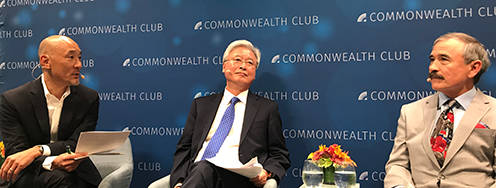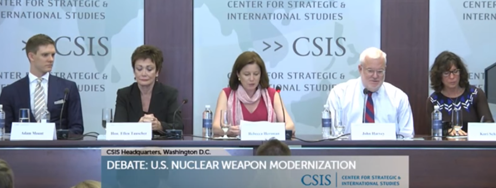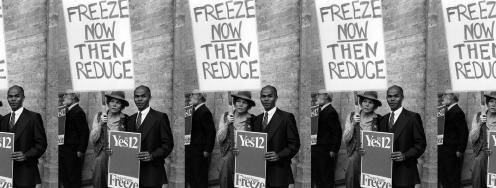Reagan the Abolitionist
One of Ronald Reagan's most powerful and living legacies was his dream of a world free of nuclear weapons. It is worth remembering this sixth of February, the centennial of his birth.
Reagan never hid his views, though many discounted them. On a bitter cold Monday in 1985, for example, when Reagan was forced to move his second inaugural ceremonies inside the Capitol Rotunda, his address to the truncated crowd was uplifting, the message unambiguous.
"There is only one way safely and legitimately to reduce the cost of national security, and that is to reduce the need for it. And this we are trying to do in negotiations with the Soviet Union. We are not just discussing limits on a further increase of nuclear weapons. We seek, instead, to reduce their number. We seek the total elimination one day of nuclear weapons from the face of the Earth."
Reagan later wrote in his memoirs, "For the eight years I was President, I never let my dream of a nuclear-free world fade from my mind."
He and Mikhail Gorbachev famously discussed abolishing all nuclear weapons at their 1986 summit in Reykjavik, Iceland. The two leaders came very close but failed to reach agreement on a treaty to eliminate all nuclear weapons within ten years. Their talks, however, paved the way for the Intermediate-Range Nuclear Forces Treaty in 1987 that eliminated all of the thousands of medium- and intermediate-range US and Russian nuclear missiles that threatened Europe. To this day, neither nation has nuclear weapons of these ranges, and several experts would like to take this treaty global, eliminating these missiles from the few other nations that have them.
Reagan outlined his views on an INF treaty in a speech three years before Reykjavik, concluding: "I support a zero option for all nuclear arms. As I've said before, my dream is to see the day when nuclear weapons will be banished from the face of the Earth."
Sadly, he was never able to sign a comprehensive ban of nuclear weapons, but Reagan did establish a framework for mutual and verifiable reductions -- through the INF treaty and original START treaty -- that the United States and Russia continue to this day.
These treaties build trust and develop momentum towards the eventual elimination of all nuclear weapons. As Reagan understood them: "We seek to reduce nuclear arsenals and to reduce the chances for dangerous misunderstanding and miscalculations, so we have put forward proposals for what we call confidence-building measures."
Reagan's measures for verification and information sharing helped the United States and Russia navigate a period of great uncertainty. These practices remain today and are codified in the New START Treaty, which was ratified by the Senate in December and, by happy coincidence, will enter into force this weekend.
Many of the former senior officials who spoke in favor of the New START treaty came from the Reagan administration, including Secretary of State George Shultz. They have stayed true to Reagan's dream. They are actively forging a growing bipartisan consensus dedicated to achieving the peace and security of a world without nuclear weapons.
Reagan would be proud.
This article was co-authored with Ploughshares Fund Research Assistant Reid Pauly



